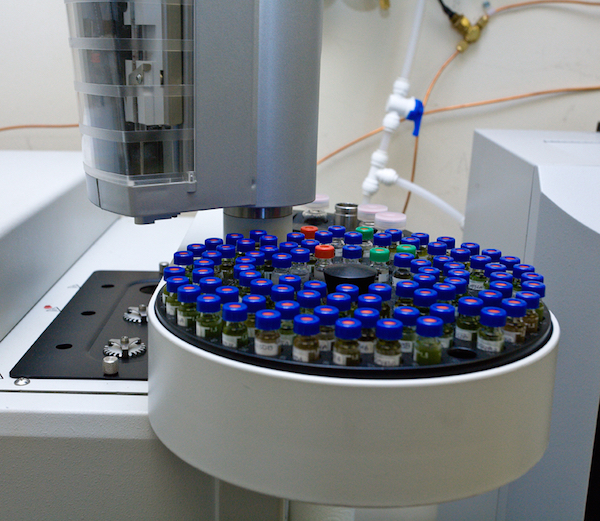Cannabis Research and Development
In addition to decades of efforts to develop improved methods for producing standardized marijuana, UM researchers have vast experience in the isolation, identification and synthesis of cannabinoids. Over 500 chemical compounds have been identified in the cannabis plant, many of which were discovered by UM researchers. Over 100 of these chemical compounds are classified as “cannabinoids,” based on their activity on cannabinoid receptors in cells causing physiological effects in humans.
Research Collaborations:
UM encourages research investigators interested in any aspect of cannabis research to contact UM researchers regarding collaborative efforts.
An example of a successful collaboration is UM’s ongoing partnership with Nemus Bioscience Inc. in the development and commercialization of cannabinoid-based pharmaceutical products. Compounds licensed to Nemus Bioscience by UM have been bio-engineered to have more predictable bioavailability and pharmacokinetics, leading to optimized efficacy and safety profiles. These compounds include prodrugs of THC and analogs of cannabidiol (CBD) for the treatment of a variety of acute and chronic conditions.
CBD Treatments of Pediatric Epilepsy:
Investigators at the University of Mississippi Medical Center (UMMC) will conduct a pilot clinical trial to study the effects of a standardized CBD extract in the treatment of epileptic seizures in children. Since 2014, when the Mississippi state law known as “Harper Grace’s Law” was enacted by the Governor, researchers and administrators at the National Center for Natural Products Research (NCNPR) and UMMC have worked diligently to design the study, develop a stable and palatable formulation for use in the study, and obtain the required authorizations from the federal government for the conduct of the clinical trial.
A standardized CBD extract provided by the National Institute on Drug Abuse (NIDA) Drug Supply Program will be delivered to the UMMC Pharmacy to be dispensed to patients enrolled in the study. This clinical study enrolls children with refractory or more serious types of epilepsy.
Latest update: UMMC investigators submitted an Investigational New Drug Application (IND) to the Food and Drug Administration (FDA) in August 2017.

